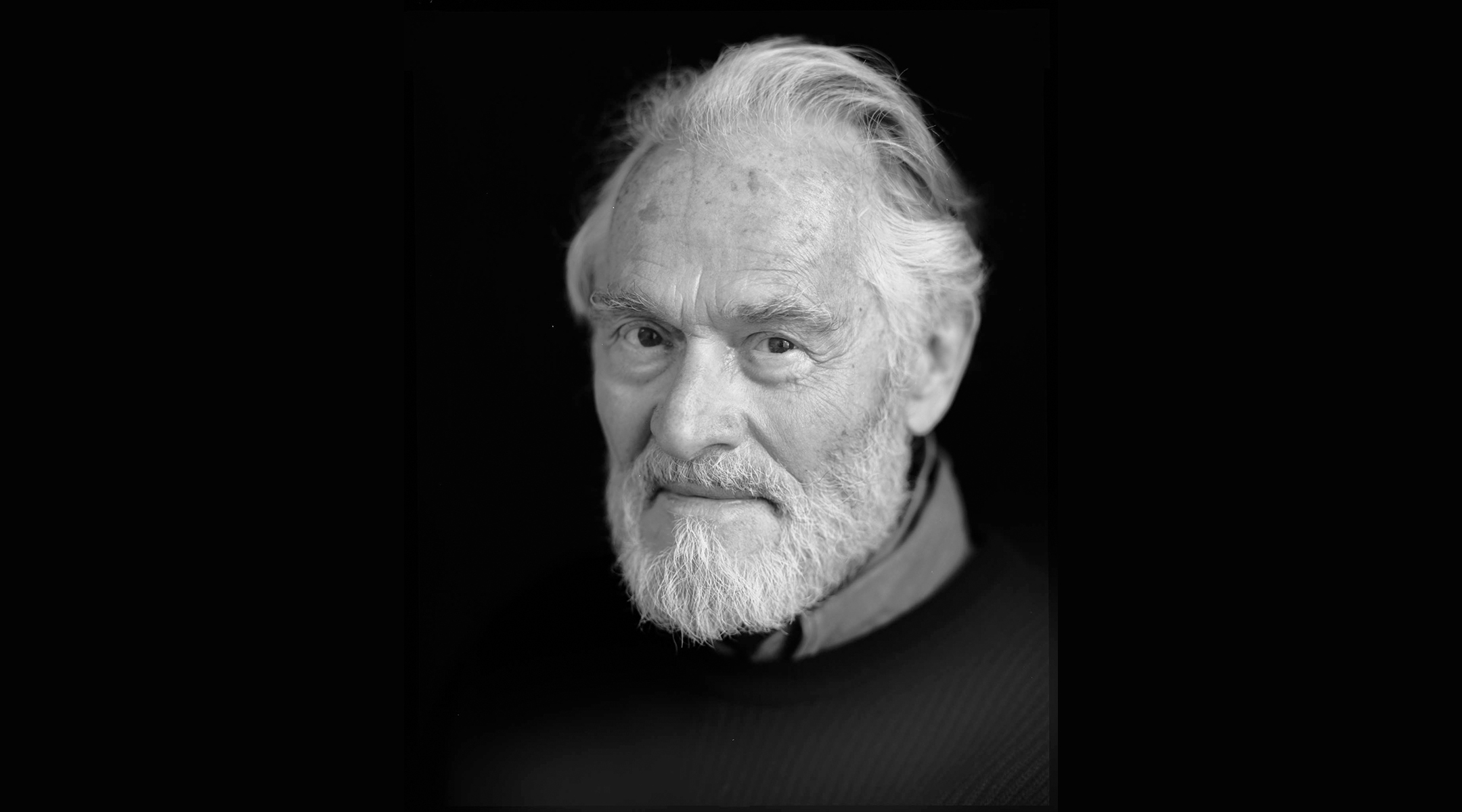Herbert Gold, novelist whose mined his own Jewish upbringing, dies at 99
He never enjoyed the commercial success or name recognition of other post-war Jewish writers, but he was widely admired for books that explored Jewish-American identity

Herbert Gold wrote more than 30 books, including the bestseller “Fathers.” (www.herbertgold.com)
(JTA) — In 1951, the writer Herbert Gold published “The Heart of an Artichoke,” a widely admired autobiographical story about his immigrant Jewish father and the grocery store he ran in a suburb of Cleveland.
When the story was left out of the 1963 anthology “Great Jewish Short Stories,” he complained to the volume’s editor, his friend and future Nobelist Saul Bellow.
“I said, Saul, you told me how much you loved ‘The Heart of the Artichoke,’” Gold recalled in a 2018 interview with the Paris Review. “But then he just said, I forgot.”
Gold, a prolific, San Francisco-based novelist who died Nov. 19 at age 99, never enjoyed the commercial success or name recognition of other post-war Jewish writers, including Bellow, Norman Mailer and Philip Roth, but he was widely admired for books that, among others things, explored Jewish-American identity through the lens of his own experience. They included the 1967 bestseller “Fathers” — a “memoir as fiction” about growing up in Cleveland — and a sequel, “Family,” published in 1981. His 1972 book “My Last Two Thousand Years” describes a trip to Israel, where the writer rediscovers his Jewish heritage.
As a journalist, he covered Israel’s 1967 Six-Day War and the 1973 Yom Kippur War for publications as diverse as Playboy and the Wall Street Journal.
In a essay he wrote in 1961, “Death in Miami Beach,” he contemplated his own mortality on a series of visits to what he described as a haven for “exiled Cubans, local hot-rodders and their gum-chewing molls, sportsmen, natty invalids in gabardine, drunks, stockbrokers, antique collectors, semites and anti-semites all taking the air together on Lincoln Road.” Admirers of the essay included Vladimir Nabokov, who chose Gold to succeed him as a lecturer on Russian literature at Cornell University.
“Herbert Gold’s particular strength as a writer is the intimacy of detail that he establishes between himself and the reader,” a reviewer, the novelist Jerome Charyn, wrote in 1981. “At its best, his language sways with a litany of song, and his characters have a special kind of vulnerability. He writes about growing old in America and the ritual of falling out of love.”
Gold was born in the Lakewood suburb of Cleveland, where his father Samuel, an immigrant from Ukraine, ran a fruit store and later a grocery store. Growing up, Gold told the Paris Review, “I felt a lot of antisemitism. But being the only Jew in the school had advantages, because sex was forbidden. Sex was work of the devil, and Jews were the work of the devil. So girls liked me. I was popular in a funny way.”
He enlisted in the Army during World War II, serving stateside, and later earned a degree at Columbia University. There he became friends with the poet Allen Ginsberg, who introduced Gold to his circle of Beat writers.
Gold also studied at the Sorbonne in Paris on a Fulbright scholarship, where his friends and acquaintances included Bellow and the African-American writers Richard Wright and James Baldwin. The first of his 30 books, “Birth of a Hero,” was published with Bellow’s help by Viking in 1951.
Gold was married and divorced twice. He is survived by four children, six grandchildren and four great-grandchildren,
A fixture in San Francisco, where he moved in 1960 to write and teach, Gold was active well into his 90s: An anthology, “Best American Poetry of 2023,” includes one of his poems. According to his website, a new book, “Father Verses Sons,” is scheduled for March 2024.
In 2021, he was interviewed by J., the Jewish weekly serving the Bay Area. “I’m very preoccupied with the fact that I’m not going to live forever,” he said. Death “is inevitable and I have to accept it. I’m comforted by the fact that a few people, my children, will remember me or will inherit something from me, and I will be immortal in that sense.”
This article originally appeared on JTA.org.













